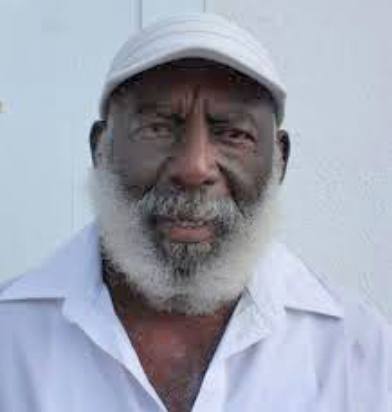Councilman Ishmael Levenston, Saba Labour Party opposition leader, lodged an interpellation and presented additional written questions for the Executive Council (the Executive) during the public Island Council Meeting held on June 28. The interpellation consisted of inquiries into the Executive’s visits to The Netherlands, St. Eustatius, St. Maarten, the Dominican Republic and Cuba.
Commissioner Chris Johnson responded that the “BES week” in The Netherlands was already covered by the press and that the face-to-face meetings clarified party-line positions with regard to the islands and on the transitional evaluation process scheduled for 2015. He had stressed the overregulation of the islands, saying, “There are too many studies taking place, a lot of wasteful spending, too much bureaucracy and too much red tape. I find that [National Service Caribbean Netherlands-Ed.] RCN is way overstaffed, when we look at the ‘experts’ coming down over here.” He noted that the central government informs broadly on funds being spent on the islands, but doesn’t release figures on how they are spent. “Half of it is chopped up and sent back up through commissioned studies and civil servants coming down here,” opinionated Commissioner Johnson, adding that the bureaucracy leaves little actual funding trickling down to residents. A realistic discussion with the islands should start with “sitting down with a budget, get a general overview and see how we can move forward,” said Johnson. He noted, “We have 500 laws for an island of 2,000 people; that is one law for every four people. Not only does it cost a lot of money to have additional civil servants come here every time a law is written, but you have to call the Second Chamber to have a meeting about it. The cost of each individual member’s transportation, the assistance, all that comes with a price tag. That money could be spent more efficiently, if actually spent here.” Commissioner Johnson suggested that the old age pension should be over US $1,000. He stressed that the French islands “have the same electricity cost, the same old age pensions as in France, the same health coverage that you have in France. For three little islands with 20,000 people it amazes me that they will still shift and pull.” Johnson intends to raise these issues on July 15 with the visiting State Secretary for Social Affairs and Employment Jetta Klijnsma.
Regarding the executive trip to the Dominican Republic organized by the Ministry of Economic Affairs, commissioner Johnson stated that Saba’s delegation was the smallest among the Caribbean Netherlands islands (Bonaire, St. Eustatius and Saba), consisting of him and Dave Levenston as head of economic affairs. While well-organized, the economic tradeshow for agricultural products had little potential impact on Saba. Johnson lamented that Saba Chamber of Commerce and the representative of Saba Merchants Association declined to attend.
Regarding the Executive’s Cuba visit, Commissioner Johnson explained that Saba has an area of cooperation with Cuba, not only in agriculture, but also in culture and health, and that the trip consisted of meetings with various ministries. Commissioner Zagers added that the Executive had secured contracts for a professional, former Olympic team soccer coach to arrive in August. Similarly, Sabans would be offered the opportunity to train in Cuba. A contract was signed for a music teacher, who will join Saba Sacred Heart School in the upcoming academic year. A dance teacher contract was renewed and within agriculture several development opportunities were
identified.
Commissioner Bruce Zagers briefed on the unilateral decisions of the Minister of Health to make austerity cuts without consultations with the islands leading to the necessary coordination with regional counterparts in coming up with cuts compliant with the budget, but attuned to the basic health care needs. Zagers noted that the islands’ Executives received divergent answers in meetings held with ministerial civil servants, signalling the need to present a joint alternative to solving identical problems. The islands’ Executives met on Saba, St. Eustatius and St. Maarten and identified wasteful spending with the insurance company, which if cut, would not directly impact patients. Medical professionals also identified cost cuts that would allow services to continue to be rendered. The minister acquiesced that her proposed cuts would not be implemented and accepted a review of insurance practices, as well as consultations with local medical practitioners. She also accepted an independent chairman for the review group in which each island is represented.
Source: “The Daily Herald” 3013-07-02

 Archive of posts from Saba-News.com Archive Saba News
Archive of posts from Saba-News.com Archive Saba News